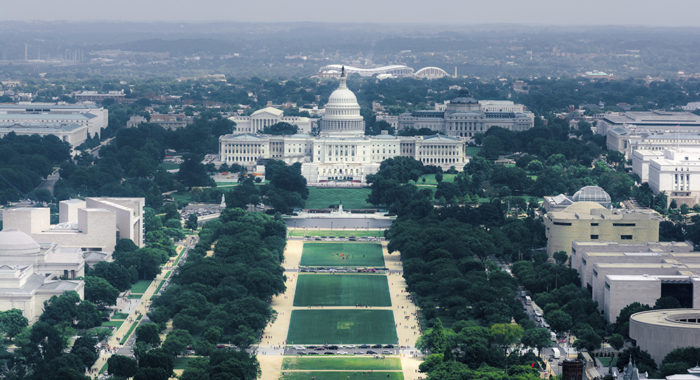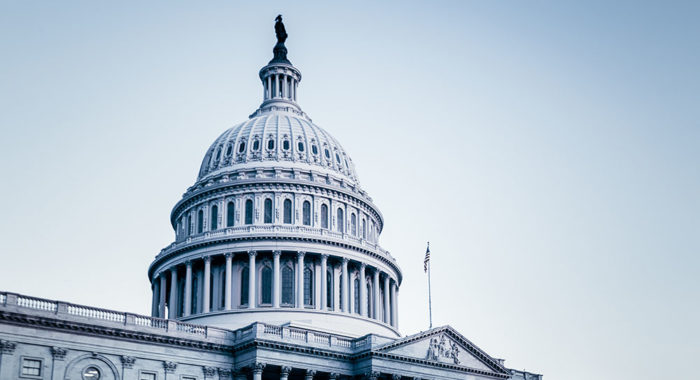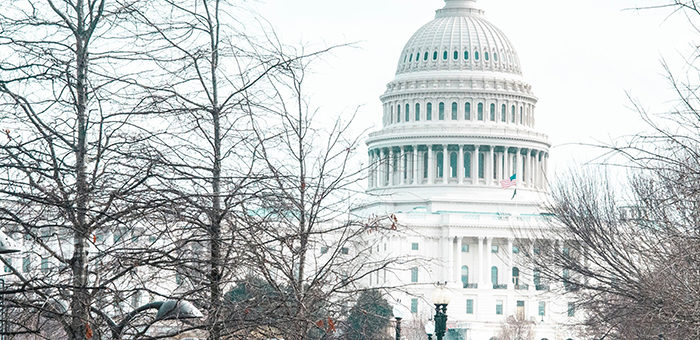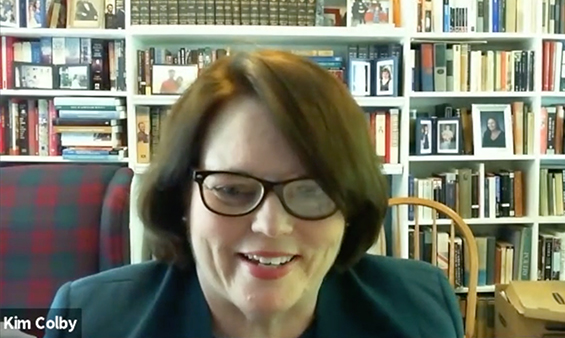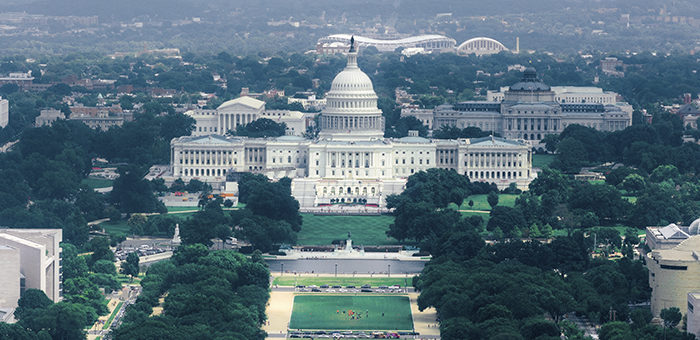Working to protect religious freedom and liberty of conscience is the first of seven principles of evangelical political engagement, as set forth in “For the Health of the Nation,” the NAE’s platform and call to civic responsibility.
Religious freedom is “both historically and logically at the foundation of the American experiment…Because human beings are responsible to God, these [first amendment] guarantees are crucial to the exercise of their God-given freedom.”
The NAE makes clear in “For the Health of the Nation” that evangelicals promote and defend religious freedom not only for ourselves, but for those of all faiths and none: “As God sends the rain on the just and on the unjust, so those who obey and those who disobey God coexist in society and share in its blessings.” Evangelicals have advocated for the protection of Jews, Muslims, Native Americans and many others, as well as for those of other Christian traditions. Evangelicals do not practice religious circumcision, but when the City of San Francisco attempted to ban the practice, the NAE strongly objected, knowing of the significance of this ceremony for Jews, Muslims and others.
The NAE supports the separation of church and state, rightly understood. The establishment clause “is directed only at government and restrains its power.” Our founders understood the corrupting impact that government influence and control can have on religious institutions. But they did not seek to scrub public life of all traces of religion. “Participating in the public square does not require people to put aside their beliefs or suspend the practice of their religion…. When government assists nongovernmental organizations as part of an evenhanded educational, social service or health care program, religious organizations do not become ‘state actors’ with constitutional duties.” When religious institutions, like their secular counterparts, partner with government, they do not lose the right to select staff that share the organization’s core commitments.
While the first amendment remains firmly ensconced in our constitution, and neither the establishment nor the free exercise clauses are at risk of repeal, we do see some challenges. If the sky is not, as some allege, falling, there are at least a few storm clouds on the horizon.
We begin this discussion, though, not with storm clouds but with a very bright spot, the Hosanna Tabor decision, in which nine Justices on a sharply divided Supreme Court unanimously affirmed the right of religious organizations to choose their own leaders, a legal principle commonly known as the ministerial exception. Hosanna is widely regarded as the most significant religious freedom case in at least the past two decades, affirming a legal principle long upheld by lower courts but never before addressed by the Supreme Court. The case is all the more remarkable because of the Court’s unanimous rejection of the administration’s surprising argument that religious organizations deserve no more deference under federal law than a Kiwanis or Rotary Club. It is particularly noteworthy that the Court grounded its decision in the establishment clause, as well as the free exercise clause. This is a case that will be cited for years to come.
Given the Hosanna Tabor decision, it is perhaps surprising that a number of universities seem to be moving in the direction of less deference to religious freedom. In 2010 the Supreme Court granted the UC Hastings College of the Law the right to discriminate against religious student organizations that maintain particular belief or behavior standards for their leaders. Crucial to the decision was the existence of a rather unusual “all-comers” policy that requires, for example, recognized Democratic student groups to admit Republicans as members and leaders, and Jewish student groups to admit Muslims. The policy provides an opening for hostile takeovers by students who may not share the established goals of the group.
More recently, private schools, including notably Vanderbilt University in Tennessee have begun to discriminate against religious student groups. For example, the InterVarsity chapter at Vanderbilt has been informed that it will be deregistered unless it agrees to amend its constitution to remove “personal commitment to Jesus Christ” as a criterion for selection of its student leaders. Altogether, more than a dozen religious student groups are likely to be expelled from campus by the time freshmen arrive in August. The great irony here is that the universities are discriminating in the name of upholding nondiscrimination policies. In the Vanderbilt case, school authorities have explicitly exempted fraternities and sororities from the new policy, but they see no need to exempt religious organizations.
If even universities, with their adult students presumably ready for exposure to the marketplace of ideas, still seek to put their institutional thumb on the scale to the detriment of religion, the issues are even more complex at the secondary and elementary school level. The NAE has joined several cases protecting free speech rights of students, while recognizing the constraints of the “captive audience” and the responsibility of school officials to maintain viewpoint neutrality and avoid endorsement or rejection of unpopular but protected ideas. We have also recently endorsed guidelines for school administrators that seek to protect students from both bullying and censorship. And in New York, we support the right of religious groups to utilize space in public schools on the same basis as non-religious groups.
While the clash of religious freedom and nondiscrimination policies arises in several areas, conflicts are particularly apparent in the area of evolving policies on sexual orientation. The repeal of the military’s Don’t Ask, Don’t Tell policy, for example, sets up a range of religious freedom issues for service members and chaplains who hold traditional marriage views. Already we are aware of chaplains who have withdrawn on grounds of conscience from participation in marriage enrichment and family strengthening programs that serve same-sex couples. Will those holding traditional views be stigmatized, marginalized and eventually pushed out of the military? Time will tell. An amendment to the Defense Authorization bill protecting the conscience rights of chaplains and service members has been approved by the House Armed Services Committee, but it faces an uncertain fate when it reaches the Senate.
Longer term, the attempts to redefine marriage portend particular difficulties for those who, whether for religious or other reasons, uphold the historic view of marriage. Rather than merely extending the benefits of marriage to a new class of beneficiaries, a change to the basic concept that marriage requires both a man and a woman amounts to a radical uprooting of the whole idea of marriage. Where this process has moved forward, we are already seeing a growing stigmatization of those who disagree. Those holding traditional views are increasingly treated as the moral equivalent of racists and bigots. In those places, many predict, actual punishment will not be far behind.
In January of this year, evangelical leaders joined Catholics, Jews, Mormons and others to articulate the religious freedom implications of redefining marriage. I commend the letter for careful study. It can be found here. The letter argues that changing the definition of marriage will result in “forcing or pressuring both individuals and religious organizations — throughout their operations, well beyond religious ceremonies — to treat same-sex sexual conduct as the moral equivalent of marital sexual conduct.” This pressure will in turn lead to conflicts. The letter points out that “altering the civil definition of ‘marriage’ does not change one law, but hundreds, even thousands, at once. By a single stroke, every law where rights depend on marital status — such as employment discrimination, employment benefits, adoption, education, healthcare, elder care, housing, property, and taxation — will change so that same-sex sexual relationships must be treated as if they were marriage. That requirement, in turn, will apply to religious people and groups in the ordinary course of their many private or public occupations and ministries—including running schools, hospitals, nursing homes and other housing facilities, providing adoption and counseling services, and many others.”
We turn now from marriage to the issue that has captured so many headlines: The requirement proposed by the administration last August and finalized in February, mandating the inclusion of sterilization, contraception and certain drugs that may operate as abortafacients, in most health insurance policies, beginning August 1, 2012. While the media has framed the controversy as an argument over contraception — something to which most evangelicals do not object — or even as part of the struggle for women’s health care — something evangelicals support — a fundamental religious freedom principle is also at stake.
In line with the protection and deference accorded religious organizations in the Constitution as well as in federal law and policy, the health insurance regulations as finalized by the administration on February 10 do contain a religious exemption. However, the exemption protects only a small subset of religious organizations, those that are incorporated as houses of worship, that exist primarily to inculcate religious values, and that hire and serve primarily their own members. This narrow exemption leaves unprotected the majority of religious organizations that take seriously the call to serve those in need regardless of creed. The announcement and finalization of this regulation was accompanied by a flurry of trial balloons about various “accommodations” that may be provided to second-tier religious organizations, including schemes in which insurance companies or other third parties might be conscripted to actually provide the religiously objectionable services and products to beneficiaries of the religious organization’s insurance policy.
For evangelicals, who do not object to the provision of sterilization or contraception services, so long as these do not involve the commission of chemical abortions, the central issue here is the explicit segmentation of religious organizations into two classes: those that are exempted and those that are accommodated. There are reasons to believe that the promised accommodations for the second class religious organizations may prove inadequate or unworkable. But even if they “work”, an unfortunate precedent will have been set: that the government may compel organizations acknowledged to be religious to provide, with their own funds, insurance policies that directly or indirectly offer employees and their families, including minor children, confidential access to products or procedures that those organizations believe to be morally wrong.
Looking ahead, next year will mark the 20th anniversary of the Religious Freedom Restoration Act (RFRA), landmark legislation correcting a disappointing Supreme Court decision in the Employment Division v. Smith case. RFRA enjoyed unusually broad support, passing the House unanimously and the Senate on a 97-3 vote. In the two decades since its passage, RFRA has never been amended, although there have been stealth attempts in recent years, including one last year related to military grooming and another this year related to environmental regulations on federal lands near the border. In the most recent case RFRA appears, not by name, but only by number in a long list of federal laws that would be overridden. The NAE opposes any attempts to amend RFRA. As always, the price of freedom is eternal vigilance.
Evangelical concern for religious freedom does not, of course, stop at the national borders. Indeed, the abuses abroad are frequently more extreme and more deadly, and the protection less reliable than what we enjoy in the United States. Evangelicals support missionaries and humanitarian workers in virtually every country of the world. We are deeply concerned about the extent and nature of religious persecution across almost all regions and religions. Freedom House estimates that more than half of the world’s population (57 percent) lives in countries that are either not free or only partly free. Both the U.S. Commission on International Religious Freedom (USCIRF) and the Department of State issue annual reports on religious freedom, and identify countries of particular concern to the United States. These are well worth studying.
Of particular concern to evangelicals are laws banning or punishing conversion from one religion to another. The case of Pastor Youcef Nadarkhani, imprisoned and sentenced to death in Iran for allegedly converting from Islam to Christianity, has gained considerable attention and should be seen as symbolic of the many thousands who face similar circumstances.
Mobs in many countries dispense with even the appearance of institutional justice. Churches and other houses of worship are attacked, worshippers killed, often with impunity. The erosion of protection for religious minorities in the Middle East is particularly alarming. Centuries old communities are being decimated.
Laws on blasphemy and defamation of religions are also highly problematic. These frequently function as sources of political as well as religious repression. Indeed, by some measures a majority of those undergoing religious persecution today suffer at the hands of persecutors of the same faith.
By law, U.S. foreign policy is required to promote international religious freedom and to use both carrots and sticks to encourage governments to strengthen religious freedom. Sanctions, however, can be waived and frequently are. In other cases sanctions are double-hatted so that religious freedom violations do not result in any additional pressure being applied. At present only one country in the world, Eritrea, has sanctions specifically related to religious freedom violations.
Evangelicals were actively involved in the advocacy leading to the passage of the International Religious Freedom Act in 1998. More recently, after some nail-biting brinksmanship, the USCIRF was reauthorized for another three years. Term limits, retroactively applied, mean that a mostly new set of Commissioners will soon take office. A 30 percent budget cut means that USCIRF’s ability to travel and document religious freedom abuses will likely be somewhat curtailed.
The position of Ambassador-at-Large for International Religious Freedom was vacant for the first half of the Obama administration. As in past administrations, the Ambassador’s Office is buried under several layers of State Department bureaucracy. The NAE continues to advocate for more vigorous U.S. government leadership in promoting religious freedom. At the same time evangelicals are also actively engaged in track II diplomacy and in private efforts to aid victims of persecution. We also work to influence both government and civil society toward greater respect for the inherent dignity and freedom of every human being.
Galen Carey, NAE vice president of government relations, is responsible for representing the NAE before Congress, the White House and the courts. He works to advance the approach and principles of the NAE document, “For the Health of the Nation.” He is also co-author with Leith Anderson of “Faith in the Voting Booth.” Before joining the NAE staff, Carey was a longtime employee of World Relief, the relief and development arm of the NAE, serving in Croatia, Mozambique, Kenya, Indonesia and Burundi. He received an M.Div. from Trinity Evangelical Divinity School, and a Doctor of Ministry from McCormick Theological Seminary.




 View All Articles
View All Articles 





